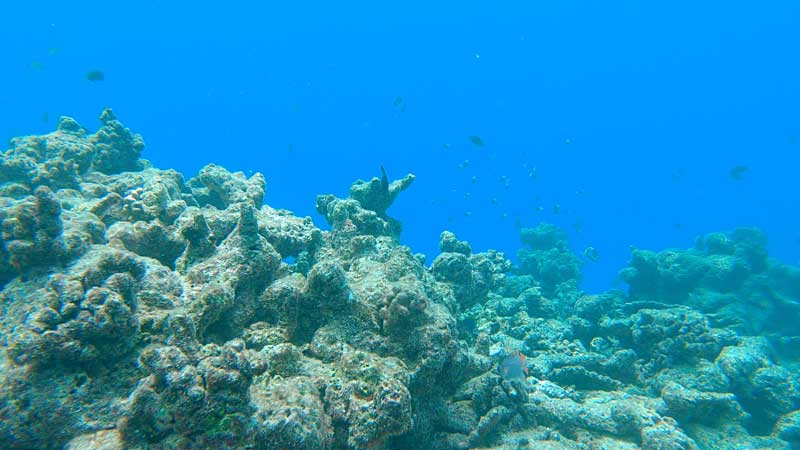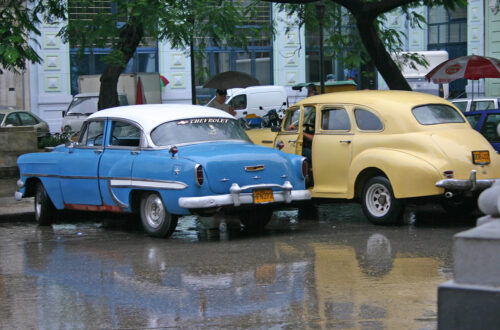Prologue
Macao Village, Dominican Republic
‘Iye, iye, iye,’ they cried.
A skinny kid wore a YSL belt to hold up the trousers of his funeral suit and played a bamboo trumpet. The trumpet wailed above the revving scooters and tattoo of the drums. The sun flashed on his belt buckle. His eyes were too big for his head and perspiration gathered on his forehead, just like on Joubert’s.
The spirits didn’t mind the heat, thought Joubert, in fact it gave them flight. A jewel of sweat coursed down his cheek and tickled as he gripped the clammy hand of his wife, trying not to outstep her in his ill-fitting shoes. She squeezed back without looking. The motley procession tramped past a broken concrete wall beneath the blistering sun, kicking up a dust that choked the nostrils and smelled of gasoline. They were heading for the crematorium just a block from Baptiste’s Holiday Auto Rental (We wish you Happy Rides!), the road strewn with rocks as big as fists. A flaking billboard declared ‘Texaco for life’ featuring a smiling white man with teeth that gleamed as he filled up a Toyota with gas. A hostile, arid heat parched throats and deadened minds.
Still, they sang.
Music bellowed and jangled—a band played a rara parade with drums that beat a tattoo to the rhythm of a pulse inside Joubert’s head so that he could feel his temples twitch. Behind them the tourist SUVs with privacy glass and rented saloons backed up, ponderous and snarling as they bounced over speed ramps or weaved around potholes. A bony bitch with teats like buttons trotted beside the band barking at the drummers, and an old man sat on his step and waved at the children in their oversized formal clothes. Fotina might have been one of those children if she had lived.
The coffin was small, glossy and white. It had cost more than a month’s takings at Joubert’s beach restaurant. He couldn’t see why it cost so much, but Fotina was his only daughter and this would be her only funeral. He oozed sweat in the black jacket borrowed from his brother, a waiter at the Paradise Club—smaller than him by six inches. The sleeves were an inch too short and the fabric made his skin itch. Joubert, the biggest in a family of ten from Port au Prince—a rock amongst pebbles, his mother had told him. Today that rock had crumbled.
The banzas twanged as the band struck up ‘Pran Kwa Mwen’ (Take Care of Me) in Haitian Creole. Everyone knew the words, which rose defiantly in a wave of timbres, especially: ‘Nou tout se moun sou late e’ (we are all people on the sidelines). Some women moved their hips and clapped. ‘Iye, iye, iye,’ they cried. Tambourines jangled like loose change, while high above the speck of a drone buzzed along to the music—an unwelcome guest. The authorities didn’t want an incident—didn’t want it recorded on El Periodica for everyone to read about. He was conflicted too: even he didn’t want to frighten away the tourist dollars brought here by the ocean and the beaches. The ocean giveth and the ocean taketh away. Tooketh away his daughter, he parodied—looking down at the dirt and litter as he shambled along beside his wife. If only the ocean could speak up for itself. He was no eco-warrior nor was meant to be. A simple man.
On the sidelines. What he was.
The heat shimmered in the distance. Joubert kicked a discarded plastic bottle that went scuttling to the kerb between the legs of the mourners. His wife shot him an angry look, grief carved in the lines on her face. Only the little people were on the sidelines, like in the song, reflected Joubert. The big people—big men—drove SUVs and dumped seaweed from their flashy beach resorts to rot where it poisoned the people on the sidelines. It was tourism that killed Fotina, and tourism that paid for her funeral.
Joubert brushed away the first and the last tear of the day.
‘Take care of me,’ sang the mourners.
Chapter One
‘The coral is dying,’ said Daniel to a small and disinterested audience of floppy-hatted, baked-skinned tourists. The woman’s translucent beach robe shimmied around her wide hips. She took snaps of a coral tank on her iPhone then glanced at her screen, instantly gratified. The chill thrust of the air conditioning raised hairs on bare limbs. Fluorescent lamps glanced off the water in steel tanks, adding polish, whilst outside the windows of the coral lab, the morning sun intensified its grip on the beach: it had the day by the scruff of the neck and was asphyxiating it.
‘Coral is unbelievably important to the diversity of the planet. Did you know, it acts as a habitat for one third of the world’s biological diversity? It blew me away when I learned that,’ confided Daniel with candour. The coral was alive, a great pulsating mass beyond the breaking surf—that’s how he visualised it. It even had a voice: the authoritative voice of his deceased father that spoke to him at night in his dreams.
The family were unawed. Tight-jawed and sceptical, they shuffled their feet with impatience, too awkward to leave now.
Daniel brandished a twiggy splinter of coral—the one he always used. ‘This is a sample of bleached coral. The natural colour of coral is white.’
‘Not always,’ argued the father, ‘I’ve been scuba diving. It’s all colours. Green, purple—’ he floundered, his colour palette exhausted. ‘—and some other colours.’
‘Can we go to breakfast now?’ pleaded the son, wrestling his mother’s thigh. He was wearing a Punta Cana baseball cap with the peak reversed and Nike trainers with raised soles. His nose was peeling.
‘Soon dear,’ said the woman. ‘David is telling us all about coral.’
‘I want pancakes and bacon and maple syrup,’ said the boy. ‘Like yesterday.’
‘It’s Daniel,’ Daniel corrected the woman with a diffident smile.
‘I like your hair,’ she said, off-topic and personal. Daniel’s hair was shoulder length, a tumble of blonde curls. The woman reached out a tentative hand but thought better of it. Daniel flinched. ‘You look like … you look like Jesus,’ she marvelled. ‘Like a Nikon.’
Her husband laughed. ‘A Nikon’s a camera.’
She flapped a hand. ‘I know what I meant.’
‘Thanks,’ he said, turning to the husband and feeling wrong-footed. ‘It’s the algae—that’s what gives coral its colour,’ he resumed. ‘They’re symbiotic: that means they can’t live without each other.’
‘A bit like us then, babes,’ said the husband with a hollow laugh. He gave his wife a playful nudge and she swatted him away like a Caribbean mosquito. ‘Symbiotic. S’what we are.’
‘Stop it,’ she threw him a sour look that said she meant it.
‘So, here’s the thing,’ continued Daniel, ‘climate change is killing off the algae, and the algae are what nourishes the coral. If the oceans don’t cool off, then the coral will bleach and die. It’s happening now, all over the world. The oceans are heating up and the coral is dying. Can you feel how hot it is? I can’t remember it being this hot.’ The air conditioning laboured as if to prove a point.
The impact was lost on the woman, who pushed her son away. ‘Don’t, Calvin. We’re going soon. We like the heat, don’t we luv? It’s why we come to the Caribbean. Better than rainy England. Cold and wet it is now. So my friend tells me. She lives in Wales.’
‘It’s been around for 500 million years,’ said Daniel for emphasis, losing his audience with the magnitude or because of apathy. ‘To put it into perspective the dinosaurs died out 65 million years ago.’
The woman looked around at the bath-sized water tanks containing lozenges of rescued coral. They looked like small grey rocks. She craned her neck to see through an internal window where she saw an array of microscopes and shiny surfaces. ‘Calvin’s got a microscope like those,’ she said. ‘Never uses it. Never. Too busy on his PlayStation. You know what kids are like these days…’ Outside the day was sharply focussed and radiant. Beachgoers strolled past the windows without a glance. The air conditioner exhaled a flurry of icy air, and the woman shuddered, her interest flagging. Her skin was stippled. ‘So where are you from?’ she said. ‘We’re from Woking in England—near London,’ she added as if that might be the only English town an American might know about. ‘It suits us.’
Daniel sighed. ‘I’m from California.’
‘Whereabouts?’ said the husband, seeking empathy.
Daniel shook his head. ‘You wouldn’t know it.’
‘I know California,’ insisted the man.
‘Sausalito. It’s a small town near—‘
‘I don’t know it,’ interjected the man with a dismissive shake of his head. He was angular and tattooed with an aggressive, wide-footed stance, and a forward lean that suggested he was working hard just to keep upright. His breath was sour with last night’s rum.
‘Look at this,’ said Daniel, leaning over a tank and pointing to a bulbous coral that undulated beneath the water. ‘The scientific name for this coral is Dendrogyra cylindrus—you probably know it as ‘Pillar coral.’
‘Pillow coral,’ said the woman, enunciating carefully and nodding her head with a sage expression.
‘Pillar,’ repeated Daniel.
‘I knew that.’ She laughed, a smoker’s clotted, throaty cackle that she tried to calibrate halfway through.
‘See the waving polyps? He’s hungry,’ said Daniel, pointing, containing the tiny thrill that rose in him every time.
‘I’m hungry too,’ grumbled the boy. His mother patted his head. ‘So, do you feed it?’ she asked, without much interest.
‘I call him Fluffy,’ said Daniel. He produced a plastic container and dipped a syringe into it, sucking up cloudy liquid, ‘and I’m going to feed him right now. This is a plankton solution,’ he said. He administered a stream of liquid to the flailing tentacles which billowed and bloomed as tiny mouths opened and closed.
‘There—you see?’ said Daniel with pride and patronage. Was the coral thankful? Did it feel the pangs of hunger? A strange tremor passed through him.
‘So, what’s Sausalito like?’ said the man, ignoring the coral. ‘How’d you end up here?’
‘I’m a marine biologist. The SeaVista resort sponsors this programme, and I came here to help save the coral reef surrounding the Dominican Republic. You know, if it wasn’t for the reef this resort wouldn’t exist at all?’
Calvin was stabbing at an iPhone, which played a mindless melody punctuated with periodic buzzes and bleeps. His mother said: ‘You say this coral is alive? Like an animal?’
‘That’s exactly right. It is an animal—the oldest member of the animal kingdom. Some live for 5,000 years.’
‘So—do they think, then? Do they have actual thoughts?’ said the woman, wrinkling her nose.
‘A good point,’ said Daniel, squirting another dose of plankton at Fluffy. ‘The science says although corals are animals, they’re not sentient. But they somehow know when it’s mealtime. My theory is they have a kind of collective intelligence, a bit like ants.’ He was drifting, testing out his theory on the guests but lost in the possibilities of thinking coral.
The woman’s eyes had glazed over. ‘But they don’t actually think, do they?’ she pressed.
‘Not in the sense you mean, no.’
‘Shame,’ she said with a dismissive look at Fluffy. ‘All right Calvin, let’s go to breakfast. ‘Thank you, David,’ and she extended a regal hand to Daniel. Should he kiss it or shake it? He wasn’t sure.
‘No problem,’ he said, accepting the hand fleetingly, ‘…and it’s Daniel, remember?’
#
After the family had gone Celina breezed in, a flurry of apologies and flapping hands. She was all bright white teeth and bronzed limbs and ribbons of honey-coloured hair that eddied around her shoulders.
‘So, so, sorry, Daniel. I’m so late.’ She had a slight inflexion, a way of extending her vowels that betrayed her Swedishness.
‘You’re not late at all.’
‘But you must want your breakfast. It’s almost ten thirty.’
‘I wasn’t that hungry. Too hot.’ He nodded out of the window at the lingering family who seemed to be engaged in an argument. ‘We had guests.’
The boy was red-faced and close to tears. The man was making chopping gestures with his hand.
Celina looked outside. ‘Were they so terrible?’ she said, ingratiating.
‘Well, yes they were.’
‘This is a paradise, isn’t it?’ she murmured, looking past the family at the palm trees and the sparkling line where the sea met the sky. ‘It still gets me.’
Another day in paradise.
She patted his cheek, and his stomach contracted at the lightness of her touch, inhaling the scent of her perspiration and her sun block. ‘Poor Daniel. Well, as you can see, I’m back now,’ she said, and she tugged open the glass door, swinging her Gucci handbag, and breezed into the laboratory where she slipped the obligatory white lab coat over her T-shirt and jeans.
‘Lisa called me,’ she called from the lab—he didn’t know a Lisa— ‘It’s 32 degrees there, can you believe? In Stockholm! And they’re rounding up illegals at the Haitian border. The usual suspects. Tragic.’
‘I’ll go get some breakfast,’ he said, and he was at the door when he thought he heard his name called.
‘Daniel.’ A voice in his head. He propped open the glass door and called inside. ‘Did you say something, Celina?’
‘Not me,’ said Celina, ‘maybe it was your precious corals.’
‘Funny,’ said Daniel. Thirty-two degrees, in Stockholm. The world was on fire.
‘Enjoy your breakfast,’ she called. ‘Bring me sliced pineapple.’
He closed the door and crossed the footpath to the beach, lifting off his sandals. The sand scalded the soles of his feet. Only a few sun-baked holidaymakers had set up early camp on sun loungers. Desultory encampments cowered from the sun beneath thatched parasols. They were sipping morning cocktails and murmuring to each other. A man in a Panama hat greased a woman’s broad, crimson back with sunblock like a turkey roast.
Daniel nodded at a waiter he knew, fresh and laundered despite the heat. A Haitian. One of the usual suspects.
‘Good morning, Señor Daniel.’ The waiter’s thick-soled shoes buried themselves in the sand. The sun bounced off the stainless steel he flapped at his side.
‘Hey, Carlos,’ he returned, pausing to survey the beach. ‘It’s quiet. Not busy yet.’
‘Not today, Señor. The seaweed…’ he said, making a gesture towards the lapping ocean. ‘They prefer the pool.’ Still smiling but deadly serious, the lines of his smile a permanent etching that even the sun couldn’t fade.
A jumbo jet rumbled overhead, trailing a silver ribbon in its wake, ripping the canvas of the sky. Daniel shielded his eyes from the sun and squinted at the plane, then at the coastline. A shallow bank of yellow and brown seaweed stretched along the beach. ‘Seems worse today.’
‘Most days it gets worse, Señor,’ said Carlos in a despairing voice. ‘The tractors, they come later to clear it away. But it’s not so nice to swim like before.’ He sighed and made a wry face, a powerless gesture. ‘And the tractors make much noise.’
‘Hmm,’ said Daniel, stepping down to the water, picking his way over the bank of seaweed.
‘See you later, Carlos.’ There was a sour, abrasive smell in the air.
‘If you need anything…’ Carlos said, with a wave and a grin. ‘A cocktail?’
‘Way too early. But thanks for asking.’
High above a Boeing completed a hashtag pattern in the sky with its plume.
Daniel met the tepid water with his bare toes: glutinous and brown in contrast to the Caribbean idyll. He stooped, scooping out a handful of seaweed. It was sargassum, a variety now plaguing the island beaches and the Mexican coast. He pinched the tiny air bladders between his fingers until they popped—the berries that kept the seaweed afloat. It was an epidemic. Millions of tons of the stuff floated out there, blocking the light that coral needed to grow. Climate change was never less in doubt.
He tossed the seaweed into the water. A ragged frigate bird swooped and then soared. Nothing of interest. The stale heat tightened his chest.
‘Daniel.’
He looked around. There was nobody within hailing distance, but he was certain he’d heard somebody call his name. A low, insistent voice, he thought. Perhaps just carried on the breeze—except there was no breeze. A mystery then.
#
A long way from paradise Professor Abraham Jewson perched on the patient bed, eschewing the chair at the side of the desk. The consulting room was compressed and silent, a vacuum. He was short of breath, but when he tried to breathe deeply his lungs wouldn’t fill. He’d known Curtis Watkins for half a century and had never seen him this serious, swivelled towards him from the desk with his hands folded in his lap. He looked old and piercing. Tight-curled, steely hair these days, and a fraught, lined face. A bow tie he successfully pulled off without looking trite.
‘So, what you gonna tell me, Curtis?’ he said.
‘I can’t sugar-coat it, Abe,’ replied his physician in a sombre tone.
‘Then don’t.’
Curtis looked out of the window. A new generation Tesla CD (Clean Diesel) saloon was engaging its notorious automated parking system to manoeuvre into a parking spot between two pickups. They both saw it and allowed themselves to be distracted by the angular bodied car’s shifts and turns, backwards and forwards into a space that was too small for it.
They sat there, prolonging the moment of truth. Abe thought he was ready for it, but you never know.
Curtis cleared his throat. ‘We’ve known each other a long time. A lot of water passed under that bridge.’
‘So, cut to the chase. No sugar-coating, just like you said.’
‘I remember when you played Summertime on the sax at my wedding. I always loved Gershwin.’
‘Curtis. I want to know.’
Curtis looked away. ‘The tests are conclusive, as I feared they would be. You’re dying, Abe,’ he said, making a half-formed gesture with his hands, more articulate than words. ‘It’s terminal.’
Abe nodded to himself, absorbing his mortality. ‘We’re all dying,’ he said, cursing his voice for faltering and not making it easy for Curtis. ‘The planet’s dying. Look at it.’ He waved a frail hand he scarcely recognised at the window. ‘The coral’s dying all along the coastline. Bleached. Not just my life’s work, but a work of hundreds of millions of years.’
Curtis sidestepped the diversion. ‘We’re talking about you, Abe. You don’t have long.’
Abe gulped for air and put a hand to his chest. The chest that contained the tumour, burrowing somewhere deep inside. ‘Mind if we open a window?’
‘They don’t open. Sorry.’ Curtis opened his palms in a helpless gesture.
‘They never do these days, do they?’
Curtis shook his head, slowly. ‘These days…’ he repeated, threading his fingers again. They were taut and white, like he was holding tight to a rail.
‘Maybe that’s why you don’t see so many flies indoors anymore?’
‘Maybe.’ Curtis waited for the inevitable question, drawing it out.
‘How long have I got?’ Standing on the precipice, wondering how long the fall would be.
Curtis fiddled with his wedding ring. ‘Functionally, I’d say six months.’
And there it was at last, laid out before them like a patient exposed for the surgeon’s knife. The final cut.
‘Functionally?’
Curtis pushed himself back in his chair. ‘I mean able to perform everyday functions.’
‘Like going to the bathroom on my own?’
‘Like that,’ said Curtis, avoiding his eyes.
Abe grunted comprehension. ‘I’m seventy-eight.’
‘I know, Abe.’
The Tesla had driven off with an impatient puff of reputedly clean black exhaust in search of a bigger space. The sun glanced off a windscreen and vapour rose in the air from the hot tarmac. A small electric Toyota swept into the vacant space and a man in a white coat got out, hauling a briefcase from the rear seat and then slamming the door.
‘Same age as the President,’ said Abe with a slow smile.
‘You would make a better one, and that’s a fact.’
‘I’ll never get that chance, will I?’
‘It’s not fair. Nothing ever is. The faculty…’ Curtis began.
‘Screw the faculty. They can do what they do without me.’
A silence descended for a few moments. ‘What will you do?’ said Curtis at last.
‘One thing I learned when I was a kid growing up in Mississippi is there’s no sense in running from mosquitos or hurricanes.’
Beyond the heat haze, Abe looked out in the direction of what used to be Cellini Street. A nice neighbourhood once. Now the jagged tips of fracking rigs were visible where they’d torn down that street years ago to drill for oil. A quiet leafy suburb, he remembered. Vibrant in summer. Palm trees. People used to charge their new electric cars in their driveways within sight of the Coral Gables Waterway—which ironically turned out to be such a great source of water for the fracking industry.
Sometimes the ground trembled beneath the University and sometimes he just imagined it.
‘Abe?’
Abe started. Pay attention, he scolded himself. Not senile yet. ‘I’ve had such a minimal impact. Sometimes I wonder if any of it’s been worthwhile after all. I’ve got an ex-student who’s doing good works in the Caribbean. Saving the planet.’ He made a wry smile. ‘Most days I just sit in my leather chair behind a computer, watching the data stream by.’
These days, he thought, thinking back to the scarcity of flies.






